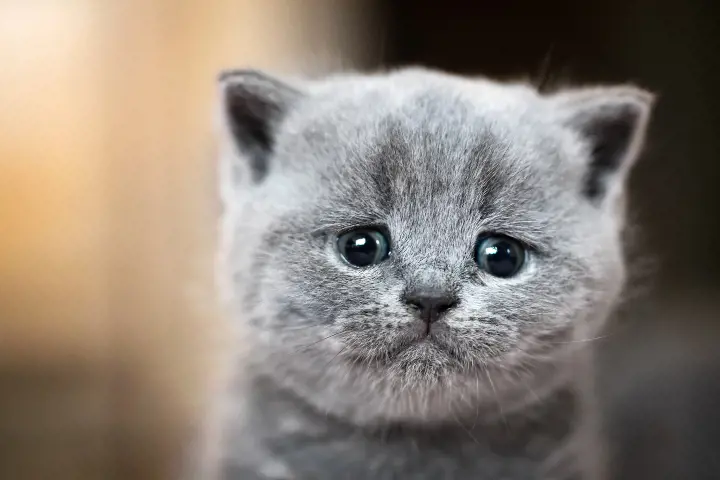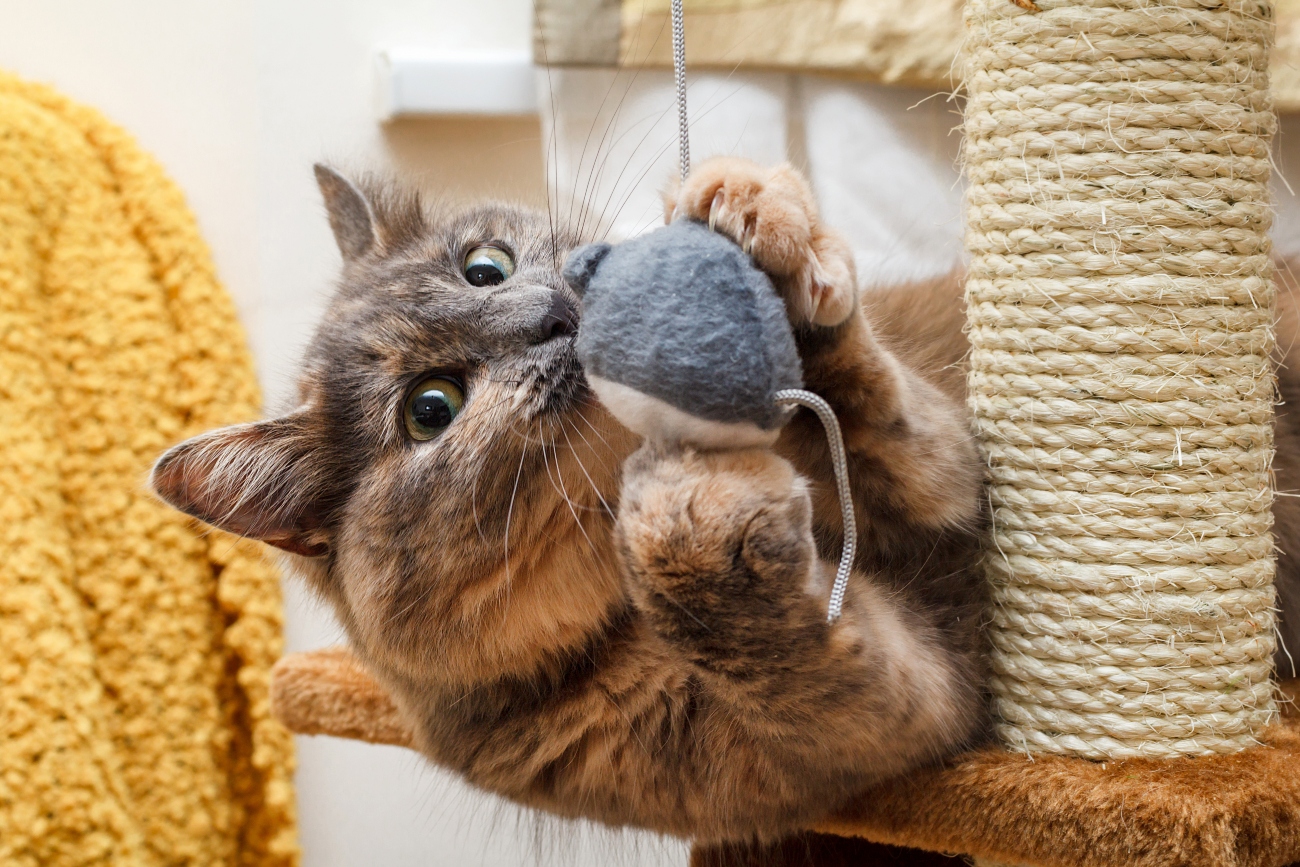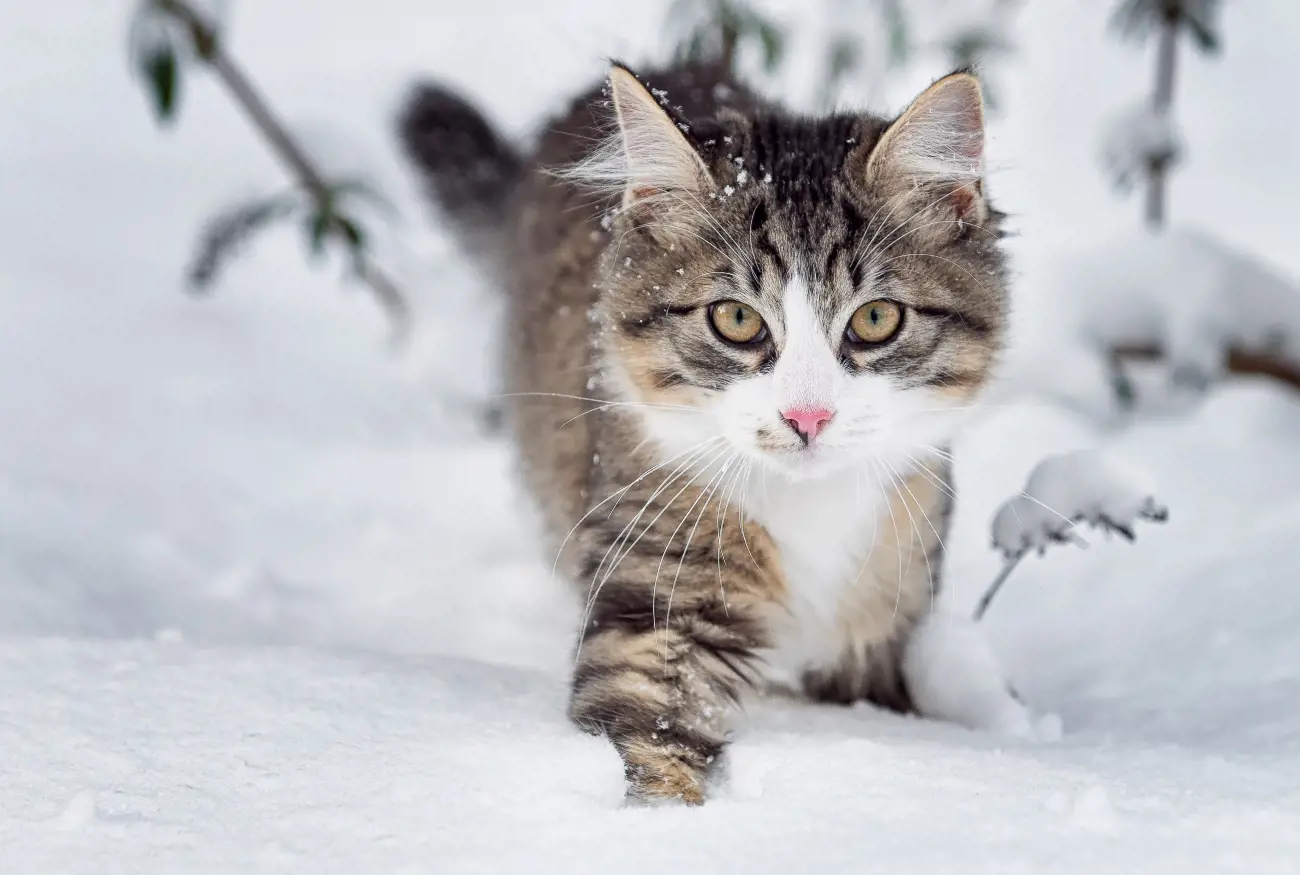Sleepless nights no more: What to do when cats cry at night
29th August, 2023

You're fast asleep, and suddenly you're jolted awake by the sound of your cat meowing at night. It's a familiar scenario for many cat owners, and it can be frustrating when you're trying to get a good night's sleep.
In this article, we'll explore what to do when your cat meows at night, including understanding why it happens, common reasons behind it, and tips for calming your feline friend.
By the end, you'll have the knowledge to create a comfortable sleeping environment for both you and your cat.
Understanding why your cat's meowing at night
Before we dive into the solutions, it's advised to understand why your cat might be meowing at night. Cats are crepuscular animals, which means they're most active during dawn and dusk. As a result, they may be more inclined to vocalise during night-time hours.
Additionally, some breeds are more vocal than others, such as Siamese cats, which are known for their loud meowing.
Cats meow at night for various reasons, ranging from hunger to loneliness to medical issues. It’s crucial to identify the cause of your cat’s night-time meowing to address it effectively and ensure your cat's well-being.
Common reasons for night-time cat meowing
Cats can cry or meow at night due to various reasons, and it can sometimes be challenging to determine the exact cause.
Here are some common reasons why cats meow at night:
- Hunger: An empty stomach can make cats meow at night. If you feed your feline companion early in the day, it may be time to add an extra meal before bedtime.
- Attention-seeking: Some cats cry at night to get their owner's attention. They may want to play, snuggle, or simply want affection. It is important to give your cat enough attention and active play during the day to reduce their need for attention at night.
- Medical problems: Cats with medical problems, such as urinary tract infection, arthritis, or hyperthyroidism, may meow at night due to discomfort. If your cat's meowing persists, it is advisable to take them to the vet for a check-up.
- Aging: You may notice an older cat meow at night more frequently due to age-related conditions such as cognitive dysfunction syndrome, which can cause confusion and anxiety.
- Environment: Cats are sensitive to changes in their environment, and even small changes can cause them to meow. For example, if you have recently moved to a new place or have redecorated your home, your cat may feel unsettled.
If your cat is crying at night, it is advised to identify the underlying cause and address it accordingly. By doing so, you can ensure that your feline companion is happy, healthy, and comfortable.
Tips for calming a crying cat at night
If you're wondering what to do when your cat cries at night, there are several strategies to help calm them down.
First and foremost, make sure you're not inadvertently reinforcing their behaviour by responding to their cries. If you give them attention, food, or playtime when they meow, they may learn to associate their crying with positive reinforcement.
Instead, try the following tips to soothe your cat's night-time crying, they'll learn that their meowing doesn't yield any rewards, and they may stop:
- Use white noise machines or calming music: These can help drown out the meowing and create a soothing environment for them to sleep in.
- Invest in a pheromone diffuser: Pheromone diffusers release synthetic cat pheromones, which can help reduce stress and anxiety in your cat.
Addressing health-related issues behind cat meowing at night
If your cat's night-time meowing persists despite trying the above tips, it's essential to rule out any health-related issues.
Cats can sometimes cry at night due to pain or discomfort, so a thorough veterinary examination is necessary to identify any potential medical problems.
Common health issues that can cause night-time meowing in cats include:
- Arthritis
- Dental problems
- Urinary tract infections
- Vision or hearing loss
If your vet diagnoses any of these conditions, they'll recommend appropriate treatments to help alleviate your cat's discomfort and, in turn, reduce their night-time meowing.
Creating a comfortable sleeping environment for your cat
A comfortable sleeping environment is essential for both you and your cat, and there are several steps you can take to ensure your cat has a cosy place to rest at night.
Some initial ideas include:
- Provide a comfortable bed: Your cat needs a soft, warm, and comfortable bed to sleep in. Make sure their bed is in a quiet and low-traffic area of your home.
- Ensure the room temperature is comfortable: Cats prefer temperatures between 21-27°C, so adjust your thermostat accordingly.
- Limit exposure to light and noise: Close curtains and blinds to minimise light exposure, and keep noise levels low to create a peaceful environment for your cat to sleep in.
Establishing a consistent bedtime routine
A consistent bedtime routine can help signal to your cat that it's time to wind down and sleep. Try to maintain a regular schedule for feeding, playtime, and bedtime.
This routine will help your cat adjust to a natural sleep schedule and reduce the chances of them meowing at night.
Managing hunger and feeding schedules
One reason your cat may be crying at night is hunger. To address this issue, try adjusting their feeding schedule or offering a small, low-calorie snack before bed.
This can help keep your cat satisfied throughout the night and reduce the chances of them waking you up.
Providing mental stimulation and exercise during the day

A bored or under-stimulated cat may be more likely to cry at night. Make sure you're providing your cat with plenty of mental stimulation and exercise during the day, so they don’t feel bored.
Offer interactive toys, engage in playtime, and consider adding a cat tree or window perch to keep them entertained.
Dealing with separation anxiety and loneliness
Some cats may cry at night because they feel insecure or anxious. If you suspect this is the cause of your cat’s night-time crying, consider adding a second cat to your household or spending more time with your cat during the day.
Additionally, you can try leaving a piece of your clothing with your scent on it near their bed to help comfort them while you're away.
Check out our other article for more tips on how to stop your cat waking up at night.
When to consult a veterinarian or cat behaviourist
If you've tried the above tips and your cat continues to cry at night, it may be time to consult a veterinarian or cat behaviourist.
They can help you identify any underlying issues and recommend additional strategies to address your cat's excessive vocalisation.
Examples of medical conditions that may be keeping your cat awake include:
1. Pain or discomfort
Cats may cry at night due to pain or discomfort caused by conditions such as arthritis, dental problems, gastrointestinal issues, or urinary tract infections. If a cat is crying and seems restless, it could be a sign of pain.
2. Hyperthyroidism
Hyperthyroidism is a common condition in older cats that can cause several symptoms, including:
- Excessive meowing
- Restlessness
- Weight loss
If a cat is crying at night and also displaying these symptoms, it could be a sign of hyperthyroidism that requires veterinary attention.
3. Cognitive decline
As cats age, they may develop cognitive dysfunction, which can cause several behavioural changes, including crying at night or wandering aimlessly.
If a senior cat is exhibiting these symptoms, a veterinarian may prescribe medication or recommend dietary changes to manage the condition.
4. Thyroid issues
A cat with thyroid issues may cry at night due to several reasons. Hyperthyroidism can cause an increase in anxiety and restlessness in cats, leading to excessive vocalisation.
Additionally, cats with an overactive thyroid may experience increased hunger and thirst, leading to more frequent trips to the litter box or water bowl. This can disrupt their sleep and cause them to cry out at night.
They may also develop high blood pressure, which can lead to ocular changes and vision loss. This loss of vision can cause disorientation and anxiety, leading to increased vocalisation at night.
Conclusion and final thoughts on managing night-time cat meowing
Constant cat meows can be frustrating for you and distressing for your cat. By understanding the potential causes and implementing the appropriate solutions, you can create a peaceful sleeping environment for both you and your feline friend.
Remember to consider consulting a veterinarian or cat behaviourist if your cat's night-time crying persists despite your best efforts.
To get a cat insurance quote for your furry friend you can get a quote through our website. If you would like to talk to one of our cat insurance team, you can get in touch with us on 0330 102 5748.
Helpful Pages
Recent Posts

Why do Pugs lick the air?
02/10/24Pet Insurance Quote
- 98% claims paid *
- Claims paid directly to vets
- 24/7 vet video consultations
- Interest free monthly payments



